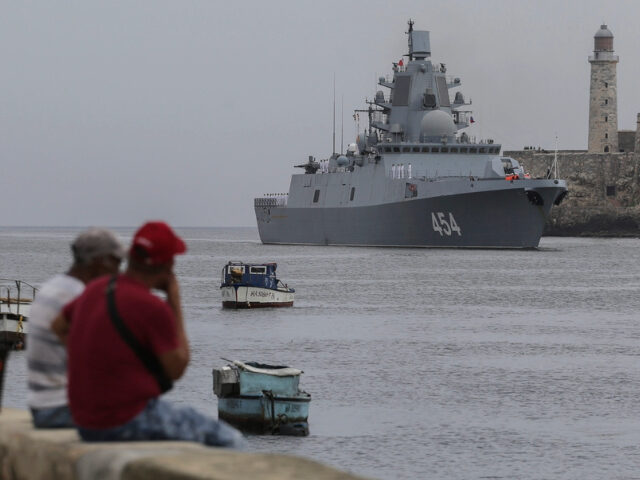Cuba announced on Wednesday that three vessels from Russia’s Baltic Fleet will visit the island nation starting Saturday, marking the second Russian war flotilla to visit the country in recent weeks.
The Ministry of the Revolutionary Armed Forces of Cuba (Minfar) made the announcement on social media in the evening hours of Wednesday, informing that the flotilla included the training ship Smólny, the patrol ship Neustrahimiy, and the offshore oil tanker Yelnya. The ships are expected in Havana from July 27-30, 2024.
“As we have pointed out on other occasions, the visits of naval units from other countries is a historical practice of the revolutionary government with nations with which we maintain relations of friendship and collaboration,” Minfar’s statement read.
“During their stay in our country, the Russian sailors will carry out a program of activities that includes courtesy visits to the Chief of the Revolutionary Navy, to the Governor of the capital, as well as touring places of historical and cultural interest,” the statement continued.
Officials from the administration of U.S. President Joe Biden have not publicly commented on the upcoming visit of the Russian war vessels to Cuba at press time.
The upcoming visit of the three Russian Baltic Fleet vessels will occur less than two months after a Russian fleet led by the Admiral Gorshkov frigate and nuclear submarine Kazan visited Cuba for five days in mid-June as part of aerial and naval combat exercises that the Russian Navy conducted in the Caribbean Sea.
Following their visit to Cuba, the Admiral Gorshkov frigate and the Akadémik Pashin oil tanker, which had accompanied the Russian fleet that visited Cuba, traveled to Venezuela for a four-day visit to the South American nation that saw the crews of both ships participate in a military parade organized by the socialist regime that commemorated the 213th anniversary of Venezuela’s independence.
Pentagon Deputy Press Secretary Sabrina Singh said in June that the military exercises Russia conducted in the Caribbean Sea did not “pose a threat” to the United States.
“We’ve been tracking the Russians’ plans for this. This is not a surprise. We’ve seen them do this — these type of port calls before, and these are, you know, routine naval visits that we’ve seen under different administrations,” Singh said at the time.
“We’re always, constantly going to monitor any foreign vessels operating near U.S. territorial waters. We of course take it seriously, but these exercises don’t pose a threat to the United States.” she continued.
The United States Southern Command nevertheless deployed the fast-attack submarine USS Helena to Guantánamo Bay in June as part of a planned and routine port visit, the U.S. said.
Castro regime officials stated at the time that Cuba had been advised of the U.S. submarine’s visit but “evidently we do not like the presence” of a nuclear-powered submarine from a country with policies “hostile to Cuba.”
In July, a delegation of Russian lawmakers led by Duma Speaker Viacheslav Volodin visited Havana, where they held talks with Castro regime officials for the construction of an oil refinery in Cuban territory as part of the ailing Cuban communist regime’s efforts to secure further Russian aid.
Christian K. Caruzo is a Venezuelan writer and documents life under socialism. You can follow him on Twitter here.

COMMENTS
Please let us know if you're having issues with commenting.